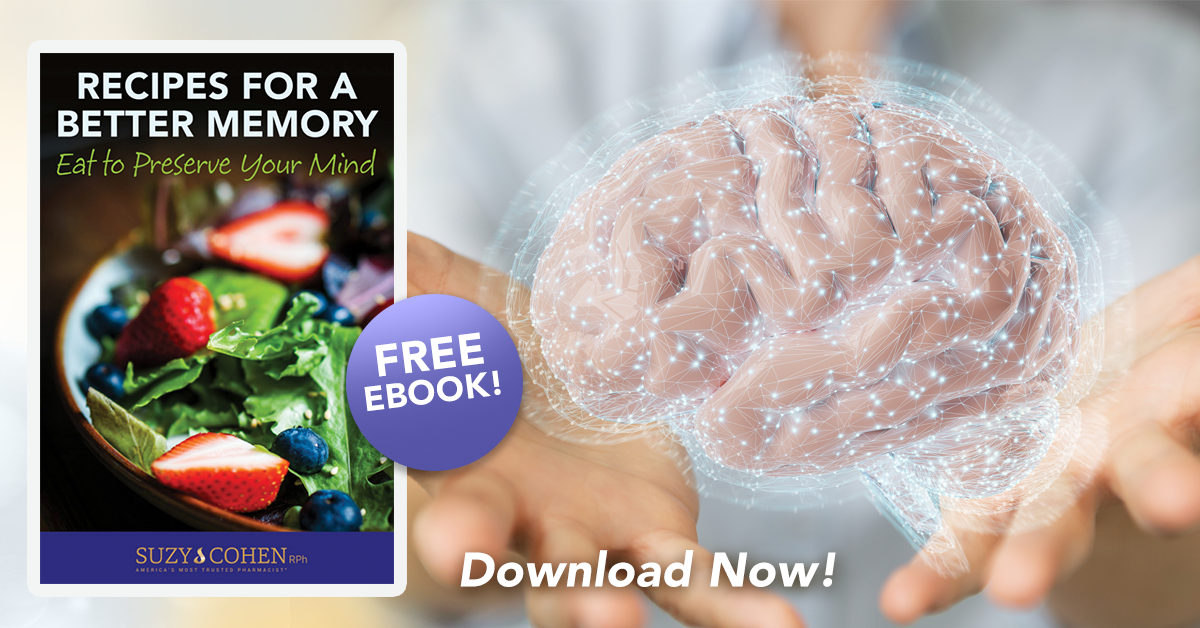What's On This Page?
ToggleDo you ever think that if we just went back to simple things, we’d all feel better? I wonder if grape juice, as simple as it sounds, could be of benefit to some of you. I don’t mean a lot of it – it’s high in sugar – I just mean a small amount, daily, taken as a shot glass of medicine! It’s not that far-fetched, people do this with pomegranate juice for their heart health already, and others drink a small amount of cherry juice for the melatonin.
Let me back up before I tell you about grape juice, because we’re talking about very important things today, like your heart, and the enlargement your heart, and much more.
PVFS
A few weeks ago I wrote about PVFS (Post Viral Fatigue Syndrome) which is the lingering, intractable fatigue that often plagues victims of viruses for years. It can be caused by the flu, Lyme, Epstein Barr Virus, and as of late, COVID-19 has been found to cause this too. The literature is not calling it by its medical term, they’re referring to it as “Long-haulers syndrome.”
This is a post-infectious illness that abates within a few weeks for most people. Think about it, you had the flu in 2018, but you feel pretty good today, right? Most of you would say yes to that, however, there are probably some of you who would confess that you’ve never fully regained your health and that there are little problems still plaguing you.
PVFS has the primary symptom of fatigue, however, it is also sometimes accompanied by sleep disturbances too. As for the tiredness you feel, that can be accompanied with other symptoms that are quite alarming. For example, shortness of breath, weakness, a sensation of lightheadedness, heart palpitations, and mild chest pain associated with exercise. If you have 5 or 10 extra minutes, please consider more suggestions which I’ve included in this article: The Link Between Chronic Fatigue And Viral Infections Plus 18 Solutions.
The reason I’m refreshing your memory on PVFS is because I want to contrast that with heart disease, more specifically LVH or Left Ventricular Hypertrophy. The symptoms for this and PVFS look similar, and so it is something you need to consider if you have fatigue and shortness of breath.
The symptoms of LVH
Shortness of breath
Fatigue
Chest pain
Exercise Intolerance
Heart beating in your chest
Dizziness
Syncope
Weakness
Left ventricular hypertrophy is not the same as PVFS, even though the symptoms are similar. LVH is an enlargement and thickening (termed hypertrophy) of the interior walls of your heart’s main pumping chamber (left ventricle). LVH is almost always driven by hypertension as its underlying cause. The high pressure in your blood vessels makes the left ventricle of your heart work ridiculously harder, and then the enlargement happens afterwards. LVH is the specific term for that condition.
Just FYI, it may also be caused by other heart problems like cardiomyopathy or an aortic valve stenosis. Your cardiologist will know all of this and be able to properly evaluate you so please make sure you schedule routine visits if you have heart problems.
Grape Juice’s Benefit for Left Ventricular Hypertrophy
A brand new STUDY was published and posted on PloS One in September 2020. It has to do with grape juice and how it could help LVH (and likely high blood pressure). The study entitled, Grape Juice Attenuates Left Ventricular Hypertrophy in Dyslipidemic Mice, was done on animals, not people. The animals had high triglycerides and cholesterol to go with the LVH. This is not uncommon in people.
The researchers took 30 mice and divided them into three different groups of 10 rodents.
HL Group – Ate a high-fat diet
HLS Group – Ate a high-fat diet and took Simvastatin each day
HLU Group – Ate a high-fat diet and drank grape juice
The researchers carefully evaluated inflammatory cytokine markers like C-reactive protein (CRP), insulin, MMP-2 and MMP-9 as well as blood sugar and other parameters.
You can probably guess what happened. After 2 months, the animals who received grape juice faired out as well as those who were treated with the statin drug, simvastatin. Their high cholesterol and insulin resistance issues improved too! Further, and this is the best part, the cytokines MMP-2 and MMP-9 (which attacks the brain!) were reduced as well as CRP. This means it has a protective benefit to the heart and blood vessels.
Keep in mind this is over 60 days, and it was just grape juice! Food with a function! The grape juice they used was botanically known as Vitis labrusca, or “fox grape” from which Concord grapes are derived. You often see these grapes used to make jelly, Concord grape juice, and some wines.
Grape Juice is an Anti-inflammatory!
The anti-inflammatory effect of grape juice had a powerful effect on LVH.
In their own words, the researchers concluded, “Grape juice has a hypolipidemic and cardiac protective potential, presenting a similar effect as that of simvastatin through a direct antioxidant action of phenolic compounds, or indirectly, via antioxidant action and anti-inflammatory activity of the HDLc. These results suggest that grape juice is a functional food possessing a high potential to prevent cardiovascular diseases.”
Studies on larger groups, and humans show that patients with LVH have a much higher risk of heart attack and that reducing LVH can reduce one’s risk for death and disability.
That said, we cannot extrapolate that grape juice is a substitute for medications and standard treatment. In no way, shape or form am I suggesting that. But a study pointing to the functional benefits of foods is interesting to me, and as a pharmacist I like having options because there are no “side effects” to grape juice.
Because medications used for LVH often come with uncomfortable side effects, adjunctive foods and supplements are important. So drinking a little juice each day is something that couldn’t hurt and might help. In 2016, a META-ANALYSIS was done (covering 12 studies, 810 study subjects) and they concluded that grape seed extract (the supplement) was able to effectively reduce blood pressure.
Furthermore, as good as the drugs are, they are just blowing the smoke out of the house, they’re not putting the fire out. Ideally, enhancing medication effect (and possibly reducing drug dosage with your cardiologist’s approval), is justifiable and common sense. And how much tastier can it get if all you have to do is drink organic grape juice!
Coronary artery disease (abbreviated as CAD) and LVH are two common causes of Ischemic Heart Disease that independently result in myocardial ischemia (which causes heart attacks). See the graphic below for symptoms of ischemic heart disease.
Medications for LVH
The ultimate goal of pharmaceuticals is to improve blood flow in the blood vessels, often by widening them. This helps reduce the heart’s burden and workload. Some of the medications work by reducing blood volume through a diuretic effect. Not all of these medications have the same effect on LVH, some are more useful than others. There’s more about that HERE.
Medication Used for LVH
ACE inhibitors to widen blood vessels
Angiotensin II receptor blockers (ARBs)
Calcium channel blockers
Beta blockers
Diuretics
Soy milk vs. Simvastatin
Soy milk is another interesting functional food. It’s not something I drink, or recommend too often, however, there is a STUDY that put soy milk up against simvastatin! This was to see which one was better at preventing atherosclerosis and LVH symptoms.
They compared the effects of soy milk consumption with simvastatin on rodents with cholesterol problems (termed “dyslipidemia”). Both soy milk and the drug showed benefit in two different areas.
According to the study, “Treatment with soy milk was more effective in preventing HDLc reduction and triglycerides and VLDLc increase. On the other hand, Simvastatin was more effective in preventing an increase in total cholesterol, LDLc and superoxide production in aorta, as well as CD40L both in aorta and left ventricle of LDLr-/-. In conclusion, our results suggest a cardioprotective effect of soy milk in LDLr-/- mice comparable to the well-known effects of simvastatin.”
That soy milk was “comparable” to medication therapy is utterly fascinating and probably comes as good news to vegans and vegetarians who consume a lot of this beverage.
Herbal Medicine
Interestingly, another herb that has been used for centuries in folk medicine may be effective for hypertension and LVH. Centella asiatica, known commonly as Gotu Kola is an herb that is native to Indonesia, India and other countries in that area. It is considered a spiritual herb. This herb along with two others could hold value for people with LVH and hypertension. Gotu kola is also precious for your mind, that’s why I put it in my memory formula.
A 2017 Indonesian STUDY conducted on three herbs native to their land was evaluated.
The doctors used a combination of herbs they nicknamed “CJID” collectively.
1. Centella asiatica = (common name: Gotu Kola)
2. Justicia gendarussa = (common name: Willow-Leaved Justicia)
3. Imperata cylindrica = (common name: Cogongrass)
The three herbs were made into a decoction (which is a “tea” where the herbal medicine is extracted into a liquid). The last two herbs are not native to the United States, they grow in sub-tropical parts of the world near Asia, Micronesia, Africa and a few other places. So don’t worry about trying to “make” this, I’m just trying to make a point here. The point is that herbal medicine can be used to support heart health and LVH, and the study I’m sharing with you today is just one example.
The study was conducted on rodents, not people, and was specifically done to determine if the 3 herbs could be helpful in mitigating oxidative stress. As you know, oxidation plays a big role in the development of hypertension, LVH and heart disease in general. Hypertension can be a cause, or contributing risk factor for LVH.
Many experts today know that oxidative stress (free radical damage) causes cytokines to become imbalanced, and it is this situation that causes the most damage to the body. Various pathways were examined (ie NOX1, NOX2 and NOX4), and blood pressure and heart rate were measured, among other parameters.

Serum and heart tissue levels of an antioxidant called SOD (superoxide dismutase) were evaluated. SOD, glutathione along with catalase all work in tandem to clear your body of reactive oxygen species (ROS) and hydrogen peroxide.
If you have an expressive heterozygous (+/-) or homozygous (+/+) SNP (polymorphism) in any of those pathways, your ability to clear out ROS and peroxide goes down! ROS builds up. Then you see more damage from these oxygen-derived free radicals! The picture looks like pain, premature grey, neuropathy, heart disease, atherosclerosis, increased toxic load, opportunistic infections, diabetes and autoimmune flares.
So having a good activity and healthy levels of SOD is important and in this specific study, it was found that the group of animals treated with the herbal tea showed increased SOD activity and reduced peroxide formation. That’s GREAT!
The researchers concluded good things about their herbal decoction. They don’t employ the use of pharmaceuticals quite the way we do in the USA, they rely on what grows in their area, more specifically plant medicine. Their residents sometimes suffer with heart disease so this research is very important to them.
I’m sharing it because you need to at least know that plants on Earth are not quackery. They can and do act similarly to potent medicaions, and can obviously help to some degree with heart health through various mechanisms of action. The researchers concluded, “In conclusion, CJID prevents H-LVH [hypertension-induced left ventricular hypertrophy] by reducing reactive oxygen species production via the NOXs-dependent pathway.”
Conclusion
If you are concerned you might have symptoms of LVH, or you have a heart condition, please see a cardiologist for proper testing and labs. Do not stop medications in lieu of any herbs you’ve learned about today (or grape juice).
Keep in mind, LVH is common in those who do not treat their elevated blood pressure. Regardless of what your systolic and diastolic numbers are, if you have LVH, your risk for heart attack and stroke is higher. Considering adjunctive supplements (with your doctor’s approval) such as ubiquinol, fish oil, antioxidants, anti-peroxide supplements (ie catalase, glutathione, SOD) and a healthy balanced diet can be helpful and have scientific research to support use.
As for the herbs above like gotu kola, I’d ask a holistic practitioner … I like it, and it is an ingredient in one of my brain-power supplements. It’s readily available in America (unlike the other two herbs above), and in fact, it is one of the most popular Ayurvedic herbs! But as to its benefits on LVH, I’m simply not convinced it can be used for that purpose yet, so please ask your doctor what’s right for you. I’ve written more about gotu kola in this article, Nootropic Supplement – Nature’s Smart Pills.

Suzy Cohen, has been a licensed pharmacist for over 30 years and believes the best approach to chronic illness is a combination of natural medicine and conventional. She founded her own dietary supplement company specializing in custom-formulas, some of which have patents. With a special focus on functional medicine, thyroid health and drug nutrient depletion, Suzy is the author of several related books including Thyroid Healthy, Drug Muggers, Diabetes Without Drugs, and a nationally syndicated column.





